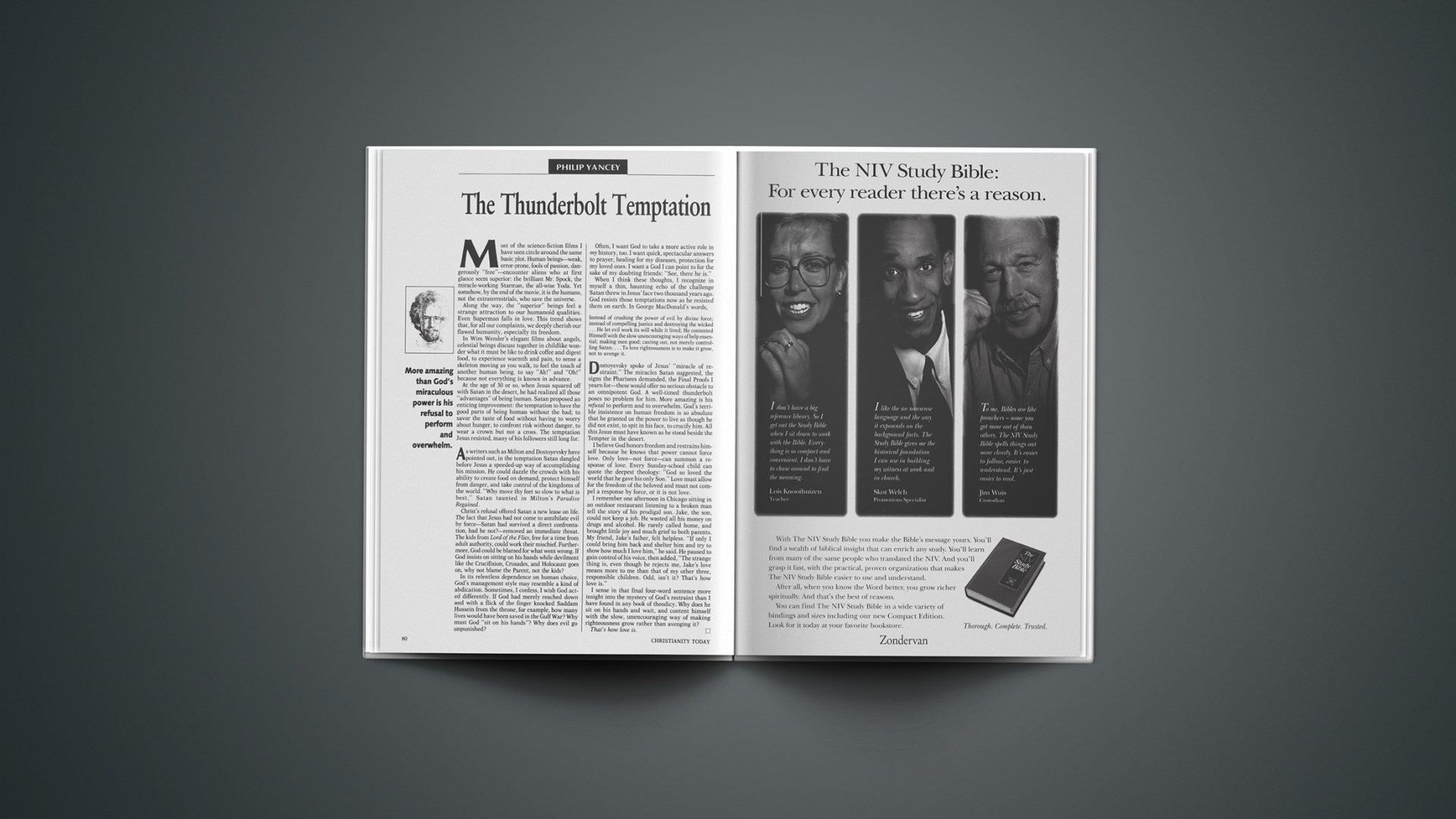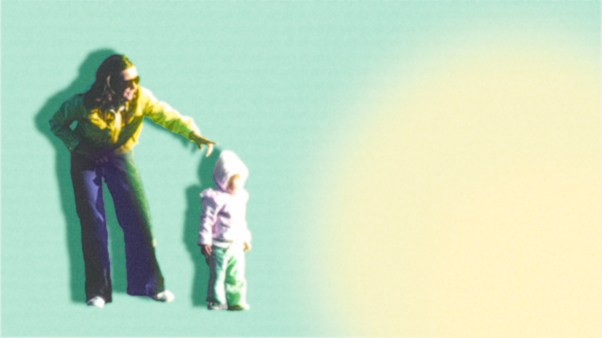Most of the science-fiction films I have seen circle around the same basic plot. Human beings—weak, error-prone, fools of passion, dangerously “free”—encounter aliens who at first glance seem superior: the brilliant Mr. Spock, the miracle-working Starman, the all-wise Yoda. Yet somehow, by the end of the movie, it is the humans, not the extraterrestrials, who save the universe.
Along the way, the “superior” beings feel a strange attraction to our humanoid qualities. Even Superman falls in love. This trend shows that, for all our complaints, we deeply cherish our flawed humanity, especially its freedom.
In Wim Wender’s elegant films about angels, celestial beings discuss together in childlike wonder what it must be like to drink coffee and digest food, to experience warmth and pain, to sense a skeleton moving as you walk, to feel the touch of another human being, to say “Ah!” and “Oh!” because not everything is known in advance.
At the age of 30 or so, when Jesus squared off with Satan in the desert, he had realized all those “advantages” of being human. Satan proposed an enticing improvement: the temptation to have the good parts of being human without the bad; to savor the taste of food without having to worry about hunger, to confront risk without danger, to wear a crown but not a cross. The temptation Jesus resisted, many of his followers still long for.
More amazing than God’s miraculous power is his refusal to perform and overwhelm.
As writers such as Milton and Dostoyevsky have pointed out, in the temptation Satan dangled before Jesus a speeded-up way of accomplishing his mission. He could dazzle the crowds with his ability to create food on demand, protect himself from danger, and take control of the kingdoms of the world. “Why move thy feet so slow to what is best,” Satan taunted in Milton’s Paradise Regained.
Christ’s refusal offered Satan a new lease on life. The fact that Jesus had not come to annihilate evil by force—Satan had survived a direct confrontation, had he not?—removed an immediate threat. The kids from Lord of the Flies, free for a time from adult authority, could work their mischief. Furthermore, God could be blamed for what went wrong. If God insists on sitting on his hands while devilment like the Crucifixion, Crusades, and Holocaust goes on, why not blame the Parent, not the kids?
In its relentless dependence on human choice, God’s management style may resemble a kind of abdication. Sometimes, I confess, I wish God acted differently. If God had merely reached down and with a flick of the finger knocked Saddam Hussein from the throne, for example, how many lives would have been saved in the Gulf War? Why must God “sit on his hands”? Why does evil go unpunished?
Often, I want God to take a more active role in my history, too. I want quick, spectacular answers to prayer, healing for my diseases, protection for my loved ones. I want a God I can point to for the sake of my doubting friends: “See, there he is.”
When I think these thoughts, I recognize in myself a thin, haunting echo of the challenge Satan threw in Jesus’ face two thousand years ago. God resists those temptations now as he resisted them on earth. In George MacDonald’s words,
Instead of crushing the power of evil by divine force; instead of compelling justice and destroying the wicked … He let evil work its will while it lived; He contented Himself with the slow unencouraging ways of help essential; making men good; casting out, not merely controlling Satan.… To love righteousness is to make it grow, not to avenge it.
Dostoyevsky spoke of Jesus’ “miracle of restraint.” The miracles Satan suggested, the signs the Pharisees demanded, the Final Proofs I yearn for—these would offer no serious obstacle to an omnipotent God. A well-timed thunderbolt poses no problem for him. More amazing is his refusal to perform and to overwhelm. God’s terrible insistence on human freedom is so absolute that he granted us the power to live as though he did not exist, to spit in his face, to crucify him. All this Jesus must have known as he stood beside the Tempter in the desert.
I believe God honors freedom and restrains himself because he knows that power cannot force love. Only love—not force—can summon a response of love. Every Sunday-school child can quote the deepest theology: “God so loved the world that he gave his only Son.” Love must allow for the freedom of the beloved and must not compel a response by force, or it is not love.
I remember one afternoon in Chicago sitting in an outdoor restaurant listening to a broken man tell the story of his prodigal son. Jake, the son, could not keep a job. He wasted all his money on drugs and alcohol. He rarely called home, and brought little joy and much grief to both parents. My friend, Jake’s father, felt helpless. “If only I could bring him back and shelter him and try to show how much I love him,” he said. He paused to gain control of his voice, then added, “The strange thing is, even though he rejects me, Jake’s love means more to me than that of my other three, responsible children. Odd, isn’t it? That’s how love is.”
I sense in that final four-word sentence more insight into the mystery of God’s restraint than I have found in any book of theodicy. Why does he sit on his hands and wait, and content himself with the slow, unencouraging way of making righteousness grow rather than avenging it?
That’s how love is.










